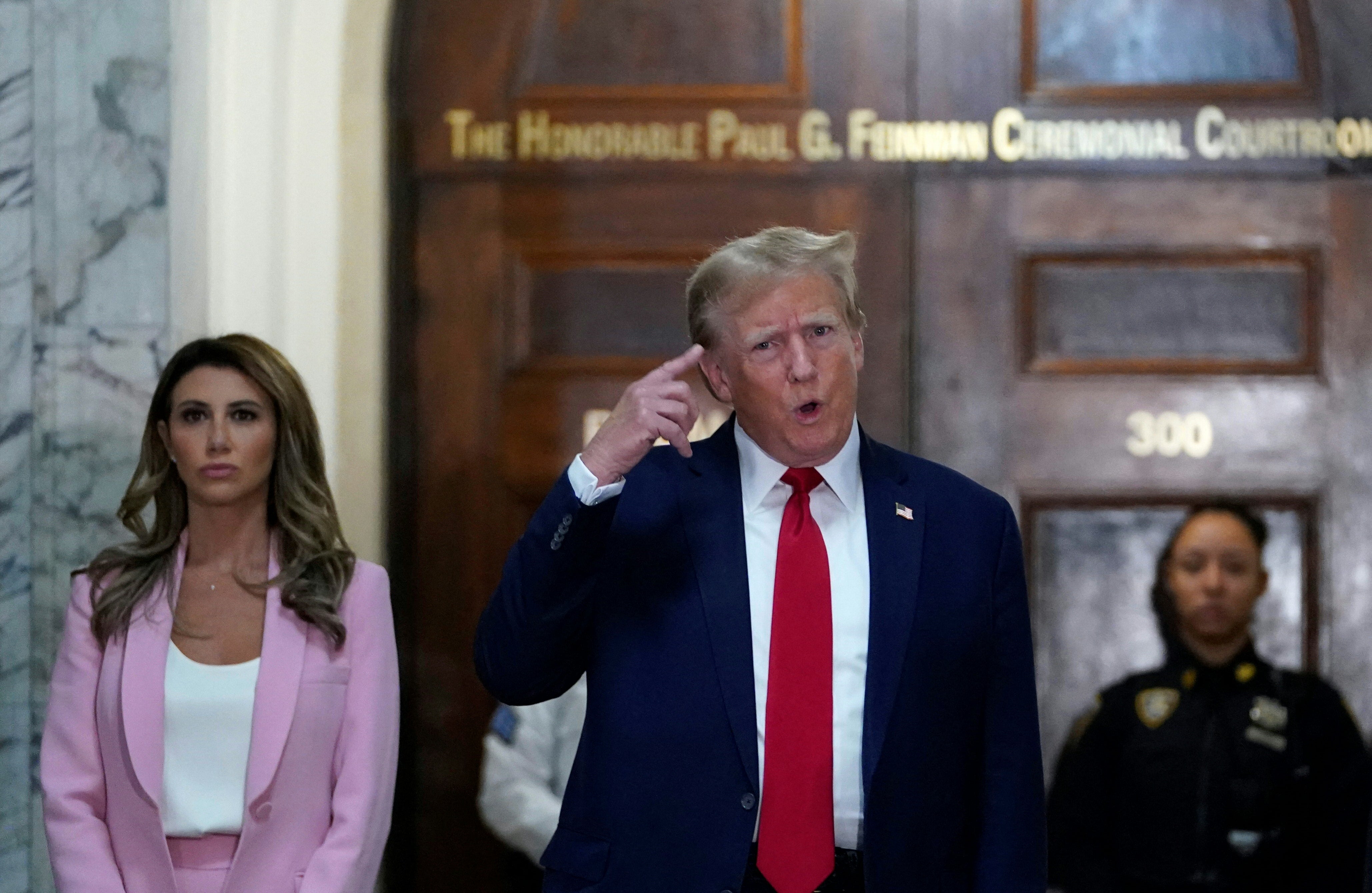It’s not up to the voters to decide if Trump can run for president
These prerequisites to hold the office of the presidency are not technicalities, and they are not decided by the voters, writes Nick Akerman

The debate over the 14th Amendment has encouraged the myth that the voters are free to choose whomever they want for president. Politicians across party lines are not addressing the merits of whether former president Donald Trump is disqualified from serving as president for engaging in the January 6 insurrection. Rather, the political class is almost uniformly proclaiming that it is up to the voters to decide if he is qualified to be president.
California governor Gavin Newsom stated: “In California, we defeat candidates at the polls. Everything else is a political distraction.” Presidential candidate and former South Carolina governor, Nikki Haley proclaimed, “I will beat him fair and square. We don’t need to have judges making these decisions, we need voters to make these decisions.” This is the politically expedient position for politicians bent on convincing voters they are not trying to eliminate their opponent for what some may view as a “mere technicality.”
The Trump campaign has called the effort to enforce the 14th Amendment downright “undemocratic.” Obviously, Mr Trump has not bothered to read the US Constitution.
When it comes to electing the president, majority voter approval is not a fundamental precept in the Constitution. From its inception, the Constitution established specific non-negotiable qualifications for eligibility to serve as president: that “[n]o person except a natural born Citizen . . . shall be eligible to the Office of President; neither shall any Person be eligible to that Office who shall not have attained to the Age of thirty five Years, and been fourteen Years a Resident within the United States.”
A president elected twice is prohibited by the 22nd Amendment from being elected for a third term. It is not up to the voters to decide whether any president can serve a third term. The myth that the voters have unfettered selection of the president is of course upended by the Constitution’s electoral college voting system that allows a minority of the country’s voters to select the president.
The plain unambiguous language of the 14th Amendment is no different. It provides that “[n]o Person shall . . . hold any office, civil or military, under the United States . . . who, having taken an oath . . . as an officer of the United States, to support the Constitution of the United States, shall have engaged in insurrection or rebellion against the same, or given aid or comfort to the enemies thereof.”
The only exception is if “two-thirds of each House” of congress vote to remove “such disability.” None of the language in this amendment, as some have suggested, limits it to those who served in the Confederacy during the Civil War or leaves its enforcement to the voters.
These prerequisites to hold the office of the presidency are not technicalities. They are strict mandates created by voters’ duly elected representatives through a constitutional process, that must be followed before the voters make their choice.
The application of the 14th Amendment to Mr Trump is unique only to the extent no prior president has ever participated in an insurrection. This episode is also unprecedented because there has never been a serious issue of whether a presidential candidate failed to meet any of the Constitutionally mandated qualifiers. Ironically, Mr Trump is no stranger to these qualifiers. He jump-started his entry into presidential politics by falsely claiming President Barack Obama was not born in the US, despite a birth certificate conclusively showing President Obama had been born in Hawaii.
Until now, political norms respected what are self-executing constitutional qualifications to be president. Everything changed with the recent decisions from the Colorado Supreme Court and the Maine Secretary of State deciding to remove Mr Trump from the Republican primary ballots of their respective states. The Supreme Court has never before found it necessary to determine whether a candidate for president met the Constitutional prerequisites to be president.
The Supreme Court must decide appeals from the decisions in Colorado and Maine, which ruled that the 14th Amendment disqualifies Mr Trump from serving as president. To paraphrase former president Harry Truman, “the buck stops” with the Supreme Court. The ultimate issue before the Supreme Court is whether Colorado and Maine properly found that Mr Trump engaged in an insurrection. Both states reached that conclusion based on “thirty-one findings from a congressional report drafted by the Select Committee to Investigate the January 6th Attack on the US Capitol.”
To the extent the Supreme Court questions the sufficiency of this evidence on insurrection from the congressional report, the Justices are in a unique position to review highly probative testimony on this issue that was not available to Colorado and Maine or to the voters in general because of grand jury secrecy rules. This is the actual sworn testimony that resulted in Mr Trump’s election interference criminal indictment in DC.
As the ultimate supervisor of the grand jury that returned the DC indictment against Mr Trump for his actions surrounding January 6th, the Supreme Court has the power to review this testimony including, most notably, that of former Vice President Mike Pence, Mr Trump’s White House lawyers and other key witnesses.
This is a judicially conservative Court with three of the nine justices appointed by Mr Trump. A decision from this Supreme Court would go a long way to gaining voter acceptance to the fact that our Constitutional rule of law mandates that the 14th Amendment applies to Mr Trump making him ineligible to serve again as president.
Nick Akerman, a former Assistant Special Watergate Prosecutor and a former Assistant US Attorney in the Southern District of New York, is an attorney in New York City.
Join our commenting forum
Join thought-provoking conversations, follow other Independent readers and see their replies
Comments